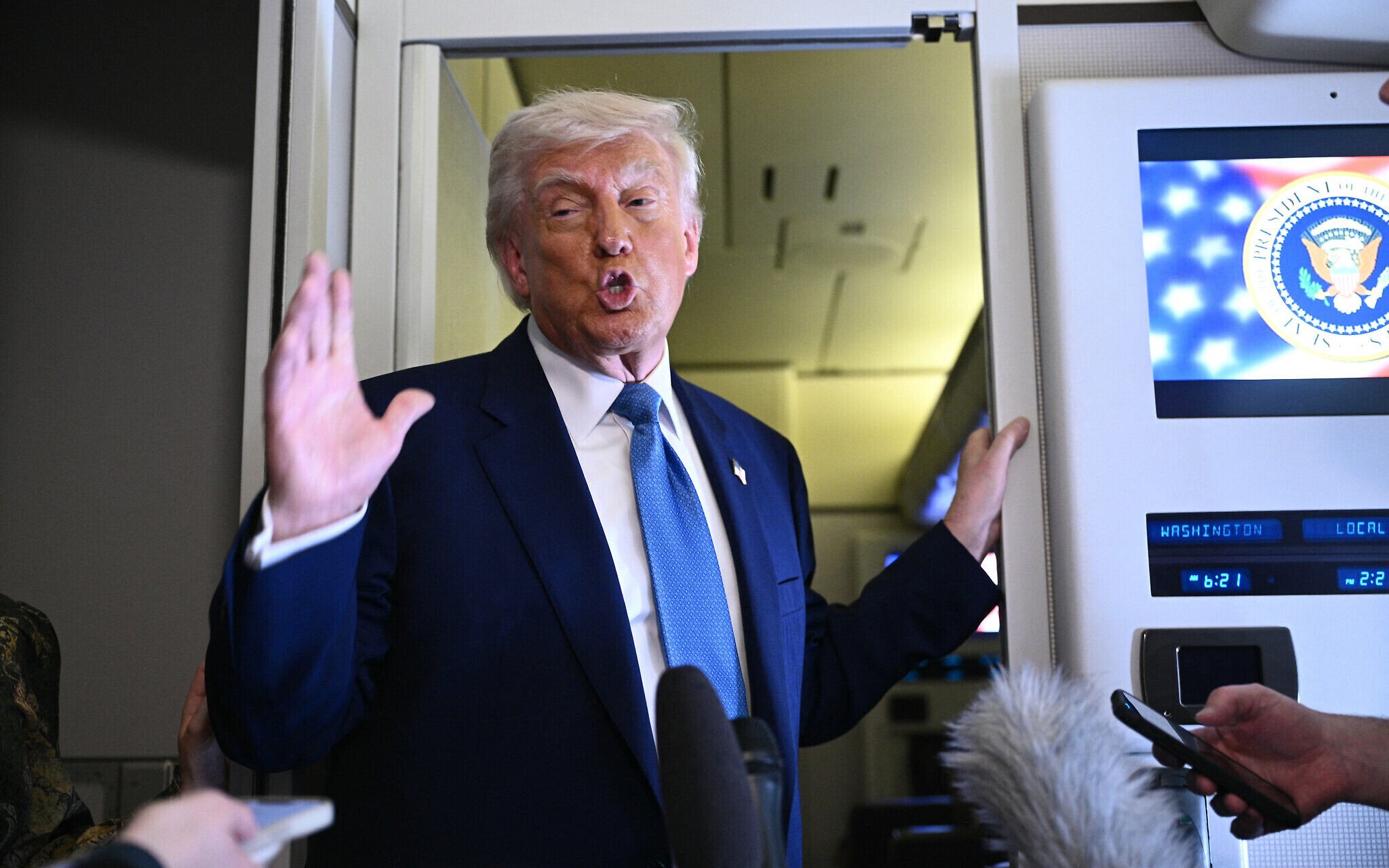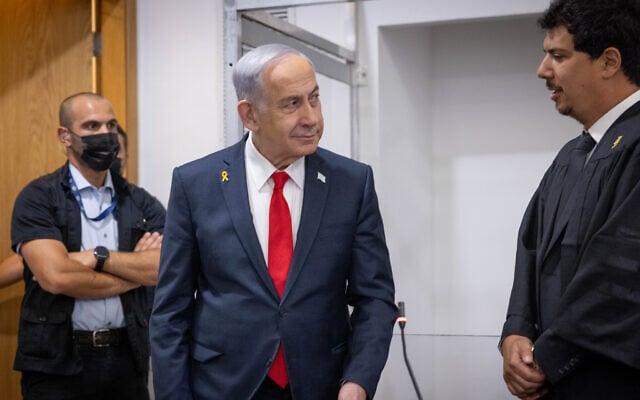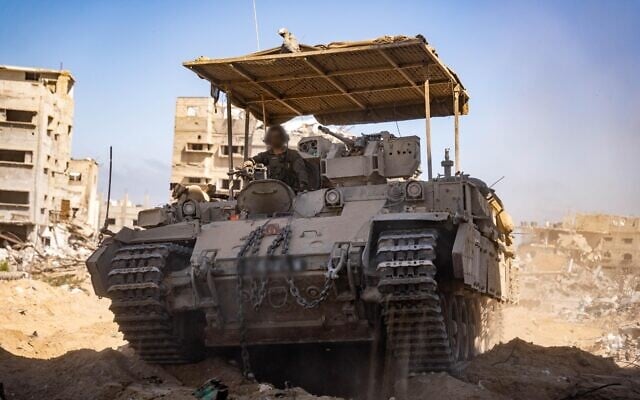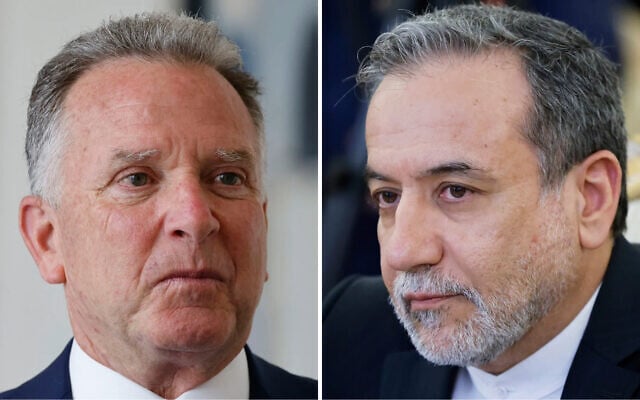



US President Donald Trump on Friday confirmed that Washington had given Tehran a draft proposal in nuclear talks, adding that “something bad is going to happen” if Iran doesn’t promptly respond. He also said he doesn’t know if Prime Minister Benjamin Netanyahu is capable of getting the remaining 58 hostages out of Gaza.
In a press conference aboard Air Force One on the last day of Trump’s visit to Saudi Arabia, Qatar and the United Arab Emirates, a reporter asked if the US president thought “the Israelis and Bibi Netanyahu can get the hostages out,” using the premier’s nickname.
“I don’t know,” Trump replied. “We’re going to find out pretty soon. We’re going to know pretty soon.”
“They’re not in good shape,” he added of the hostages. “Some of them are in better shape than others. A little bit depends on the place where they are, but we’ll be working with [Israel] to get them.”
Israel believes that 20 of the 58 hostages are still alive following the release on Monday of US-Israeli captive soldier Edan Alexander, while it is gravely concerned for three others. The other 35 are confirmed to be dead.
The living captives are all young men abducted during the Hamas onslaught of October 7, 2023, when thousands of terrorists stormed southern Israel to kill some 1,200 people and take 251 hostages, sparking the war in Gaza.
Alexander’s release, which jump-started truce-hostage talks in Doha, was seen as a goodwill gesture toward Trump by Hamas, and reportedly came in exchange for a US promise it would pressure Israel to reach a deal. However, two Arab officials told The Times of Israel Thursday that Trump’s Mideast envoy Steve Witkoff had told mediators the US would not force Israel to end the war in Gaza. Israeli and Arab officials have told The Times of Israel that Netanyahu’s insistence on continuing the war has effectively stymied the talks.
Hamas has conditioned the release of more hostages on an Israeli commitment to ending the war in Gaza — an option Netanyahu has ruled out. On Thursday, Hamas also warned of harm to the talks if Israel doesn’t resume the flow of humanitarian aid into Gaza.
Speaking at an Abu Dhabi business forum on Friday, Trump said, “a lot of people are starving, a lot of bad things going on” in Gaza. “Gotta get that taken care of,” he added.
Israel, which accuses Hamas of hoarding aid, halted the flow of humanitarian supplies on March 2. The halt came hours after the last ceasefire-hostage deal’s first phase expired amid Netanyahu’s refusal to negotiate a second stage, which would have required the IDF to withdraw from the Strip.
Israel has argued that sufficient supplies entered the Strip during the 42-day first phase, which saw the terror group release 33 captives in exchange for some 1,900 Palestinian prisoners. In recent weeks, however, IDF officials have warned that the enclave is on the brink of starvation.
In a bid to circumvent Hamas, Israeli officials have advanced a framework in which pre-approved representatives will pick up food every other week from distribution sites in southern Gaza that would be secured by US contractors.
Speaking in Abu Dhabi on Friday, Trump said his administration had handed Iran a proposal for a nuclear agreement, adding that “they know they have to move quickly or something bad is going to happen.”
The comment came a day after Axios reported that Witkoff had given Iranian Foreign Minister Abbas Araghchi a written proposal for a nuclear deal during their fourth round of talks earlier this week. Tehran denied receiving such a document.
Trump told the Abu Dhabi business forum that Iran’s nuclear program would be dealt with “one way or another,” and that the solution could be “done nicely” through an agreement “or not nicely” — apparently referring to potential military action.
“We are talking to them, I think they’ve come a long way,” he added.
Though Tehran and Washington have both said they prefer diplomacy to resolve the dispute, they remain divided on several red lines that negotiators will have to circumvent to reach a new deal and avert future military action.
Iranian authorities have repeatedly said that their red lines include reducing the amount of highly enriched uranium stockpile to a level below what was agreed under Iran’s 2015 nuclear pact with world powers, which Trump scrapped in 2018.
Iran, which openly seeks Israel’s destruction, has ramped up its enrichment of uranium to 60 percent purity, which has no peaceful application, and has obstructed international inspectors from examining its nuclear facilities. Netanyahu has demanded that Iran’s nuclear facilities be dismantled altogether.
Tehran denies it has ever sought to build a nuclear weapon, but Western intelligence services mistrust such claims, and Iranian officials have increasingly suggested the country could seek nukes in the face of international pressure.
Trump’s tour of the Middle East, which began on Tuesday, was his first official state visit during his second term, following a brief foray to Rome for the funeral of Pope Francis last month.
The US president, who did not visit Israel on the trip, said Wednesday that Jerusalem was not being sidelined and that the trip was in fact “very good for Israel.”
His trip ended in Abu Dhabi on Friday after a breakfast with business leaders and a visit to the city’s Abrahamic Family House, an interfaith complex combining a mosque, a synagogue and a church, which is named after the Abraham Accords that Trump brokered between Israel and four Arab nations, including the UAE, during his first term.
Jacob Magid contributed to this report.



